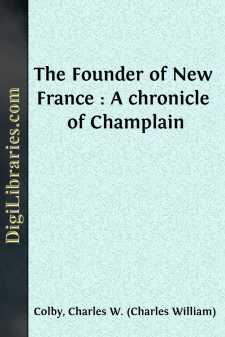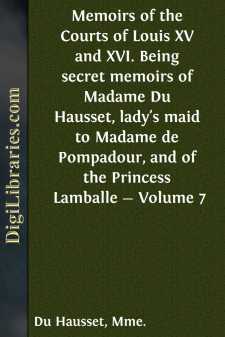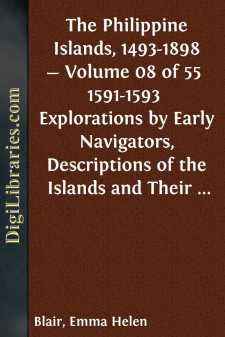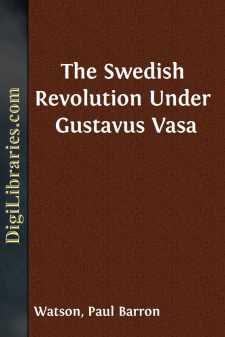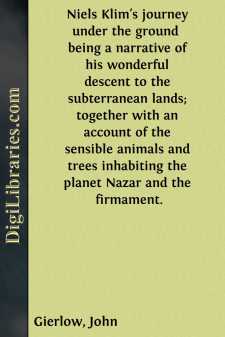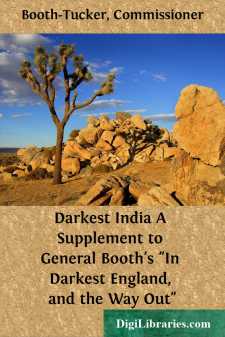History
- Africa 30
- Americas (North Central South West Indies) 50
- Ancient 68
- Asia 58
- Australia & New Zealand 8
- Canada 41
- Caribbean & West Indies 1
- Civilization 20
- Eastern Europe 12
- Europe 310
- Expeditions & Discoveries 60
- General 77
- Historical Geography 1
- Jewish 9
- Latin America 3
- Medieval 8
- Middle East 13
- Military 248
- Revolutionary 8
- Study & Teaching 5
- United States 353
- Western Europe 56
- World 13
History Books
Sort by:
CHAPTER I. CHAMPLAIN'S EARLY YEARS Were there a 'Who's Who in History' its chronicle of Champlain's life and deeds would run as follows: Champlain, Samuel de. Explorer, geographer, and colonizer. Born in 1567 at Brouage, a village on the Bay of Biscay. Belonged by parentage to the lesser gentry of Saintonge. In boyhood became imbued with a love of the sea, but also served as a...
more...
by:
Mme. Du Hausset
Editor in continuation: I am again, for this and the following chapter, compelled to resume the pen in my own person, and quit the more agreeable office of a transcriber for my illustrious patroness. I have already mentioned that the Princesse de Lamballe, on first returning from England to France, anticipated great advantages from the recall of the emigrants. The desertion of France by so many of the...
more...
by:
Robert Black
CHAPTER XVII. THE CRUSADES, THEIR DECLINE AND END. In the month of August, 1099, the Crusade, to judge by appearances, had attained its object. Jerusalem was in the hands of the Christians, and they had set up in it a king, the most pious and most disinterested of the crusaders. Close to this ancient kingdom were growing up likewise, in the two chief cities of Syria and Mesopotamia, Antioch and Edessa,...
more...
by:
Emma Helen Blair
Preface In this volume are recorded the more important events in the history of the Philippine colony during the years 1591–92. The dissensions between the secular and the ecclesiastical authorities continue, though the governor asks, in various important public affairs, the advice of the religious orders, and in view of a threatened invasion by the Japanese, appeals to the ecclesiastics to cease...
more...
by:
Henry P. Bowie
USIC was written in a scrawl impossible to decipher up to the thirteenth century, when Plain Song (Plain Chant) made its appearance in square and diamond-shaped notes. The graduals and introits had not yet been reduced to bars, but the songs of the troubadours appear to have been in bars of three beats with the accent on the feeble note of each bar. However, the theory that this bar of three beats or...
more...
There is no one of the Pioneers of this continent whose achievements equal those of the Chevalier Robert de la Salle. He passed over thousands of miles of lakes and rivers in the birch canoe. He traversed countless leagues of prairie and forest, on foot, guided by the moccasined Indian, threading trails which the white man's foot had never trod, and penetrating the villages and the wigwams of...
more...
PREFACE. NO name in history lies deeper in Swedish hearts than the name Gustavus Vasa. Liberator of Sweden from the yoke of Denmark, and founder of one of the foremost dynasties of Europe, his people during more than three centuries have looked back fondly to the figure of their great ruler, and cherished with tender reverence every incident in his romantic history. This enthusiasm for Gustavus Vasa is...
more...
by:
John Gierlow
INTRODUCTION. Lewis Holberg, the author of the Narrative of Niels Klim, was the most eminent writer among the Danes in the eighteenth century. His works show a surprising versatility of genius, comprising Histories and Treatises on Jurisprudence, together with Satires and Comedies. He was by birth a Norwegian, but was educated at the University at Copenhagen in Denmark. Soon after receiving a...
more...
INTRODUCTION TO THE REVISED VOLUME. The third volume of the American Eloquence is devoted to the continuation of the slavery controversy and to the progress of the secession movement which culminated in civil war. To the speeches of the former edition of the volume have been added: Everett on the Nebraska bill; Benjamin on the Property Doctrine and Slavery in the Territories; Lincoln on the Dred Scott...
more...
CHAPTER I. WHY "DARKEST INDIA?" It is unnecessary for me to recapitulate the parallel drawn by General Booth between the sombre, impenetrable and never-ending forest, discovered by Stanley in the heart of Africa, and the more fearfully tangled mass of human corruption to be found in England. Neither the existence, nor the extent, of the latter have been called in question, and in reckoning the...
more...


